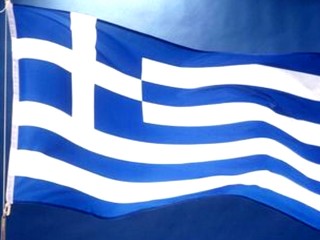The French President introduced his magnificent plans. The EU should become a political union governed from Brussels in two years.
According to Hollande, there is too much European lethargy. An offensive must be started – a construction of political union and common economic government harmonizing taxes or social affairs. France is reportedly prepared to supply the “content” to such a union. Let´s hope that not the government personnel. French economy is in a bad condition and people who vote with their feet demonstrate that in the European economic and social spheres the winning approach is that of Germany – despite the “unfairly” low wages.
Also, Mark Rutte, the Dutch Prime Minister, chose similar rhetoric to comment on this idea. France should put this much energy into tidying up in its own economy and budget rather than coming up with European economic government. On the other hand, the Italian Minister of Foreign Affairs takes the French idea seriously. Is it like in that proverb: a crow sits next to a crow?
To push such ideas through, peace and unity are needed. Those are damaged by various anti-European hell-raisers, such as the well-known Nigel Farage. He was considered to be a clown for a long time, but the increasing popularity of (not only) his eurosceptic party is inconvenient to Brussels. European Socialist platform in the European Parliament came up with a proposal to impose a fine on “right-wing radicals” and parties contravening peace.
Various devious individuals and parties exist indeed, but they are successful rather in the states rescued by Troika than in the European Parliament. The Greek nationalist party Golden Dawn became a subject of another scandal when one of its members shouted Heil Hitler! in Greek Parliament. Nevertheless, its popularity is growing and the last poll showed 11,5% support. Kind of difficult to understand it since the Greek nation suffered from one of the hardest Nazi occupations in non-Soviet Europe; but democracy brings also surprises like this.
Greeks are experiencing 19th quarter of a recession in a row and in this situation the popularity of cure-all measures will raise. Domestic bank system got stuck in zombie mode. ECB funds domestic banks with 61 billion euros and their national central bank with another 33 billion via ELA programme. Every fourth loan is delinquent, which poses impossible financial demands on the banks in practice.
The situation on the rest of the periphery is not better, either. In Ireland, the level of delinquent loans is 19%, in Italy 13,4%, in Spain and Portugal about 10%. This situation brings back the Cyprus solution, in which a part of bank loses had to be borne by bank depositors who provided banks with their deposits for operations. There is a hot proposal in Brussels permitting banks to rescue their losses more easily by using depositors’ money exceeding the amount of 100,000 euros. We could avoid a situation when we all bail out banks using our taxes. Obviously, there is a pending question – would anybody with all their senses about them put bigger amount of money into Spanish or Slovenian banks?
Spain has announced the first trade surplus since 1971. Good news; is the export growing? Not really, there is a huge annual import decrease by 3,5 billion euros behind the change, and the export increased only by 400 million. Thus, the economy is not more competitive, only people have less resources for buying foreign products.
Competitiveness of European economy will be the topic of Wednesday´s summit of the EU. Actually, energy is 37% more expensive for European firms than for American ones, moreover, it’s 20% more expensive than in Japan. The main cause is the extremely expensive green policy of the EU. Negotiations could bring at least partial turn in approach to coal, shale gas and nuclear sources. What is more, German MEP, Holger Krahmer, marked this summit as “the end of climatic hysteria.”
Europe is fighting with lower competitiveness in different ways, for example, by thinking about tariffs on Chinese solars, with the Chinese supposedly engaging in dumping. Even if this was true, this step has no sense. Chinese working people would like to sponsor cheap solars for us to let us fulfil our green goals and we refuse them? A worse impact than the rise in price of solars is the possible Chinese tariff revenge. What is more, the Commission is not really in line with suspicious cheap trade of Chinese phones Huawei and ZTE. If it is your favourite brand, get preventively ready for tariffs.
A critique of financial transaction tax is getting stronger. The latest analysis of consulting company Oxera estimated the real income from this tax to only something more than a half of Commission expectations. What is worse, this tax could reduce GDP by 2% in participating countries. But fighting against crisis by new taxes is so convenient for politicians.
Brussels takes care not only of our big problems, but also of the small ones of everyday life. The legendary European regulation of cucumbers curving has a new competitor in the field of Brussels inventions. It is no more allowed to serve olive oil in restaurants in glass jugs, dipping bowls, or anything like this…
Section “you can’t make this stuff up, it must be French” was primarily occasional. But Hollande’s government is so creative that it gets us inspired every week. The latest news showed that thanks to the new tax system more than 8000 French households will pay in taxes for 2012 more than they earned.
And wait, Iceland does not want to be EU member anymore. But we do want you, also next week.
Translated by Jana Kostovčáková



